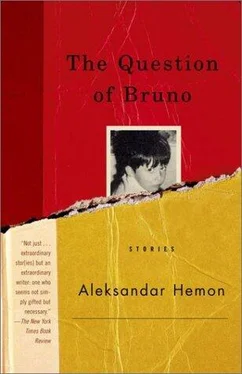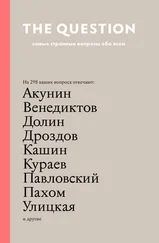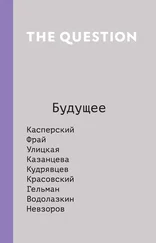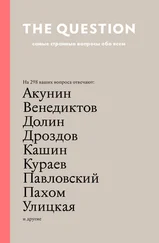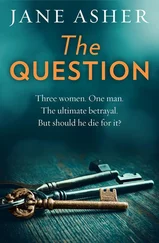Alphonse Kauders hated horses. Oh, how Alphonse Kauders hated horses.
Alphonse Kauders, in the course of time, truly believed that man created himself in the process of history.
Alphonse Kauders stood behind Gavrilo Princip, whispering — as urine was streaming down Gavrilo’s thigh, as Gavrilo’s sweating hand, holding a weighty revolver, was trembling in his pocket — Alphonse Kauders whispered: “Shoot, brother, what kind of a Serb are you?”
Alphonse Kauders described his relationship with Rex: “We, living in fear, hate each other.”
There are records that Alphonse Kauders spent some years in a juvenile delinquents’ home, having set seven forest fires in a single week.
Alphonse Kauders said: “I hate people, almost as much as horses, because there are always too many of them around, and because they kill bees, and because they fart and stink, and because they always come up with something, and it is the worst when they come up with irksome revolutions.”
Alphonse Kauders wrote to Richard Sorge: “I cannot speak. Things around me do not speak. Still, dead, like rocks in a stream, they do not move, they have no meaning, they are just barely present. I stare at them, I beg them to tell me something, anything, to make me name them. I beg them to exist — they only buzz in the darkness, like a radio without a program, like an empty city, they want to say nothing. Nothing. I cannot stand the pressure of silence, even sounds are motionless. I cannot speak, words mean nothing to me. At times, my Rex knows more than I do. Much more. God bless him, he is silent.”
Alphonse Kauders knew by heart the first fifty pages of the Berlin phone book.
Alphonse Kauders was the first to tell Joseph V. Stalin: “No!”
Stalin asked him: “Do you have a watch, Comrade Kauders?” and Alphonse Kauders said: “No!”
Alphonse Kauders, in the course of time, told the following: “In our party, there are two main factions: the Maniacs and the Killers. The Maniacs are losing their minds, the Killers are killing. Naturally, in neither of these two factions is there any women. Women are gathered in the faction called the Women. Chiefly, they serve as an excuse for bloody fights between the Maniacs and the Killers. The Maniacs are the better soccer team, but the Killers can do wonders with knives, like nobody else in this modern world of ours.”
Alphonse Kauders had gonorrhea seven times and syphilis only once.
Alphonse Kauders does not exist in the Encyclopedia of the USSR. Then again, he does not exist in the Encyclopedia of Yugoslavia.
Alphonse Kauders said: “I am myself, everything else is stories.”
Dr. Joseph Goebbels, talking about the winds of Alphonse Kauders, said: “They were akin to the wail of an everlastingly solitary siren, sorrow in the purest of forms.”
One of the seven wives of Alphonse Kauders had a short leg. Then again, the other leg was long. The arms were, more or less, of the same length.
In the Archives of the USSR, there is a manuscript which is believed to have originated from Alphonse Kauders:
“1) shoot under the tongue (?);
2) symbolism (?); death on the ground (?); in the forest (??); by an anthill (?); by a beehive;
3) take only one bullet;
4) the sentence: I shall be reborn if this bullet fails, and I hope it won’t;
5) lie down, so all the blood flows into the head;
6) burn all manuscripts => possibility of someone thinking they were worth something;
7) invent some love (?);
8) the sentence: I blame nobody, especially not Her (?);
9) tidy up the room;
10) write to Stalin: Koba, why did you need my death?
11) take a bottle of water with me;
12) avoid talking until the certain date.”
One of Alphonse Kauders’s seven best men was Richard Sorge.
Alphonse Kauders regularly subscribed to all the pornographic magazines of Europe.
Alphonse Kauders removed his own appendix in Siberia, and he probably would have died, had he not been transferred to the camp hospital at the very last moment. And that was only because he had informed on a bandit in the bed next to his for secretly praying at night.
Alphonse Kauders said to Eva Braun: “Money isn’t everything. There is some gold too.”
Alphonse Kauders was a fanatic beekeeper. In the course of his life, he led fierce and merciless battles against parasitic lice that ruthlessly exploit bees, and are known as “varoa.”
Alphonse Kauders said: “The most beautiful fire (not being a forest one) I have ever seen, was when the Reichstag was ablaze.”
The very idea of creating Alphonse Kauders occurred for the first time to his (future) mother. She said to the (future) father of Alphonse Kauders: “Let’s make passionate love and create Alphonse Kauders.”
Father said: “All right. But let’s watch some, you know, pictures.”
Alphonse Kauders was a member of seven libraries, of seven apicultural societies, of seven communist parties and of a national-socialist one.
Alphonse Kauders told the following: “In elementary school, I attracted attention by stuffing my fist into my mouth. Girls from other classes would rush in droves to see me stuff my fist into my mouth. My father, a teacher, glowed with a bliss, seeing all those girls swarming around me. Once, a girl that I wished to make love to approached me. And I was so excited that I tried to shove both of my fists into my mouth. I sacrificed my two front teeth for my passion. Ever since I have been noticed for my insanity. This strange event probably determined the course of my life. Ever since I haven’t talked.”
On one copy of The Forestry Bibliography, 1900–1948 , kept in Zagreb, there is the following handwritten remark: “Since the day I was born, I have been waiting for the Judgment Day. And the Judgment Day is never coming. And, as I live, it is becoming all too clear to me. I was born after the Judgment Day.”
Alphonse Kauders told the following: “When Rex and I had a fight, and that happened almost every day, he would stray and would be gone for days. And he would tell me nothing. Except once. He said: ‘The stray-dog shelter is full of spies.’ “
On the eve of World War II, in Berlin, Alphonse Kauders said to Ivo Andric: “A firm system still exists only in the minds of madmen. In other people’s minds, there’s nothing but chaos, as well as around them. Perhaps art is one of the last pockets of resistance to chaos. And then again, maybe it isn’t. Who the hell cares?”
On the eve of World War I, Alphonse Kauders said to Archduke Franz Ferdinand’s pregnant wife: “Let me penetrate a little bit, just a little, I’ll be careful.”
On one of Alphonse Kauders’s seven tombs, it is written: “I have vanished and I have appeared. Now, I am here. I shall disappear and I shall return. And then, again, I shall be here. Everything is so simple. All one needs is courage.”
Alphonse Kauders wrote to one of his seven wives letters “full of filthy details and sick pornographic fantasies.” Stalin forbade such letters to be sent by Soviet mail, because “among those who open and read letters there are many tame, timid family people.” So then Alphonse Kauders sent his letters through reliable couriers.
Alphonse Kauders said: “I–I am not a human being. I–I am Alphonse Kauders.”
Alphonse Kauders said to Richard Sorge: “I doubt there exists an emptiness greater than that of empty streets. Therefore, it is better to have some tanks or bodies on the streets, if nothing else is possible. Because Anything is better than Nothing.”
Alphonse Kauders, in the course of time, put a revolver on Gavrilo Princip’s temple, for he had burned a bee with his cigarette.
Alphonse Kauders, in the course of time, said to Stalin: “Koba, if you shoot Bukharin ever again, we shall have an argument.” And Bukharin was shot only once.
Читать дальше
